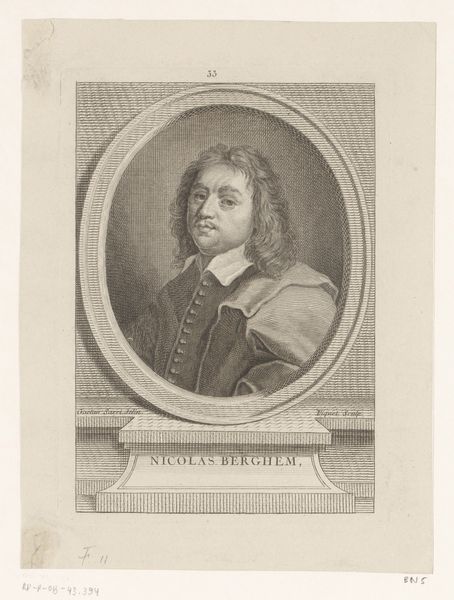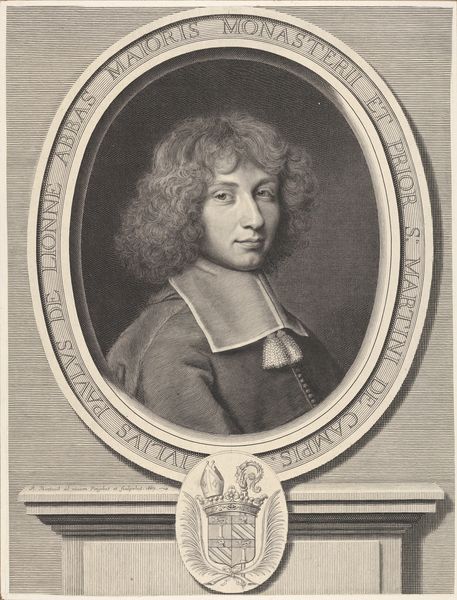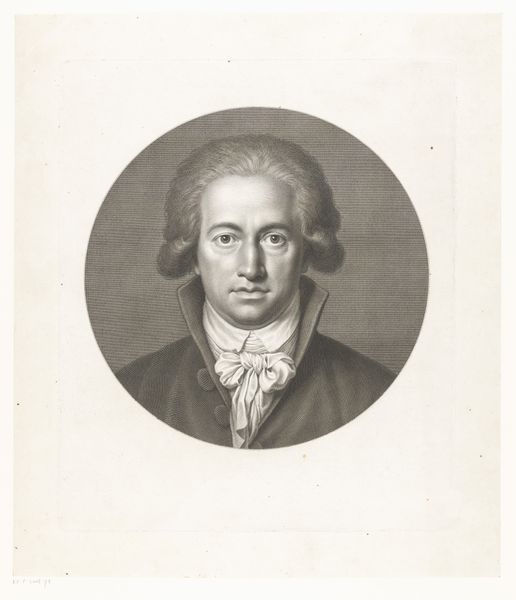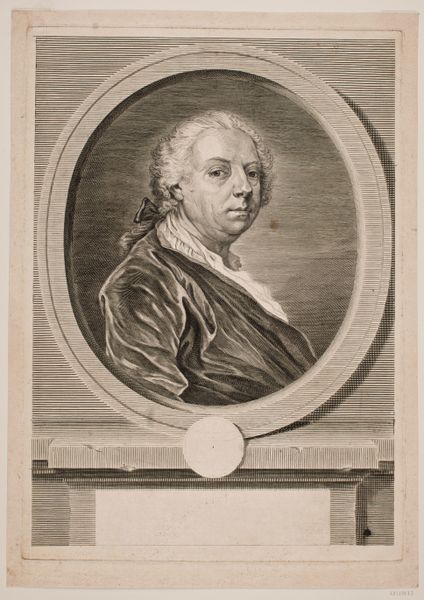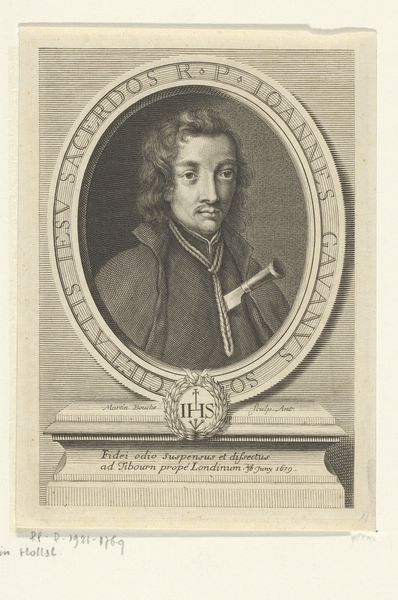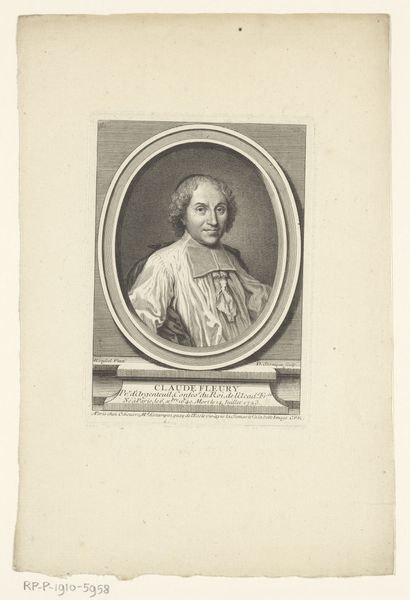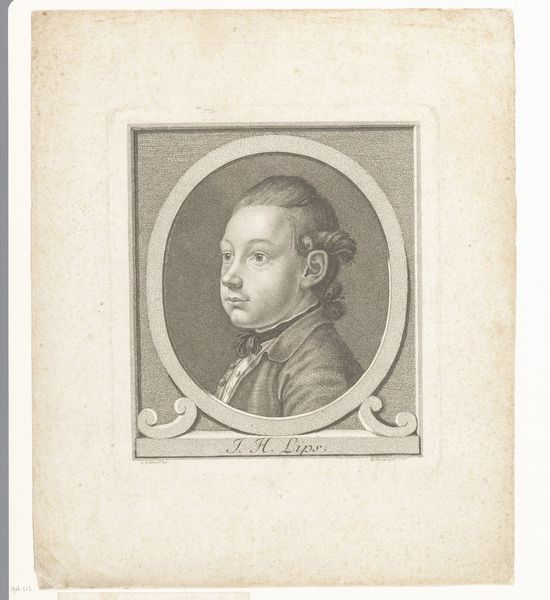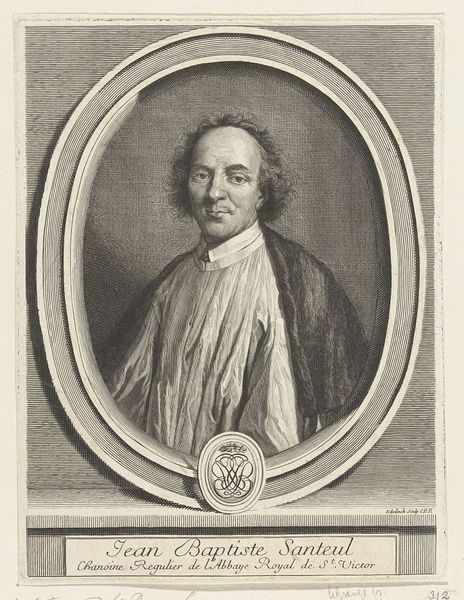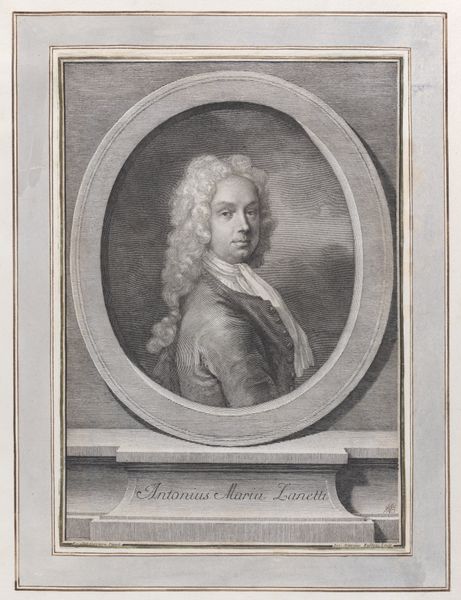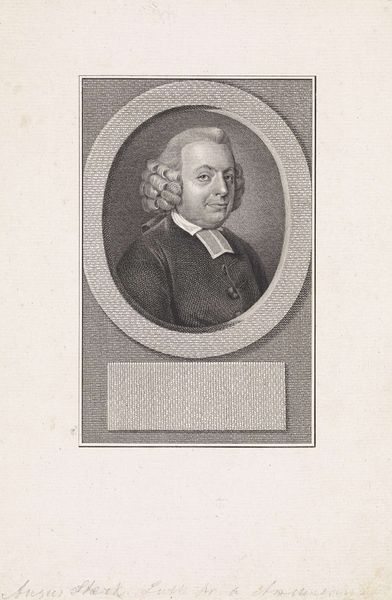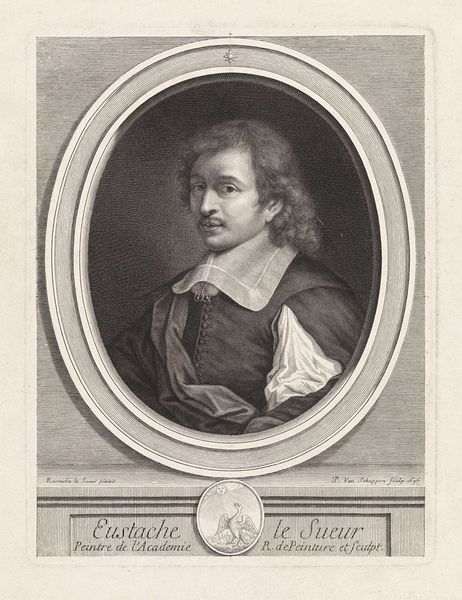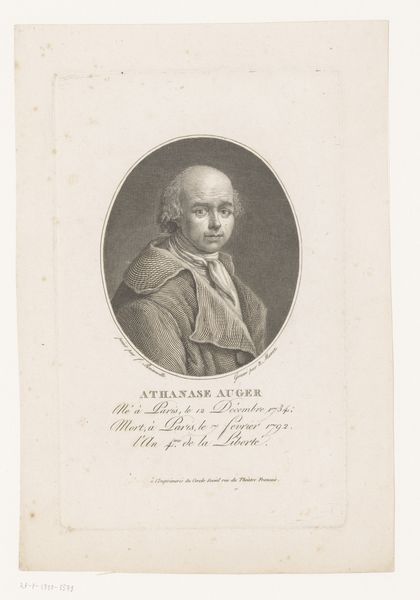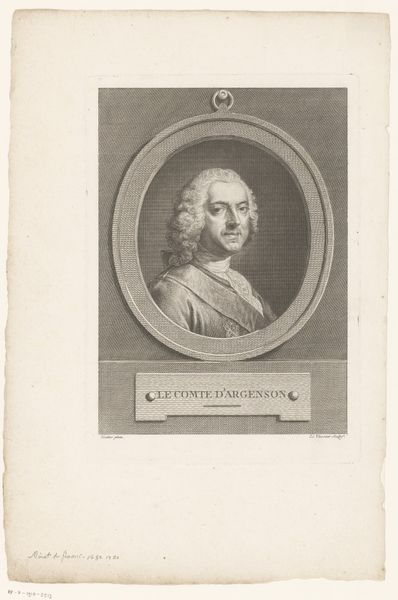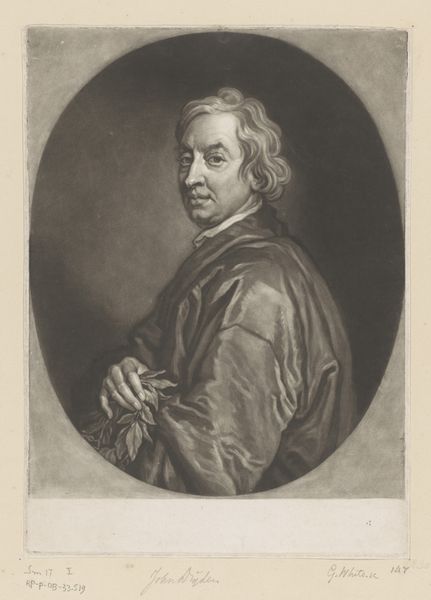
print, engraving
#
portrait
#
baroque
# print
#
old engraving style
#
engraving
Dimensions: height 145 mm, width 104 mm
Copyright: Rijks Museum: Open Domain
Jean Daullé created this print, Portrait of Antoon Van Dyck, using etching and engraving techniques in the 18th century. This image reflects the enduring appeal of Van Dyck, a celebrated 17th-century Flemish Baroque artist known for his portraits of European aristocracy. Daullé's print, housed here at the Rijksmuseum, exemplifies the institutional power of art to shape historical memory. By reproducing Van Dyck's image, Daullé participates in a cultural project that elevates the artist to the status of a timeless master. Consider the social conditions that might have influenced the making of this image. In 18th-century France, the aristocratic patronage system still played a significant role in artistic production. Daullé, as a printmaker, would have been keenly aware of the market for images of famous artists. He would circulate these among collectors and academies, thus validating Van Dyck's position within the art historical canon. To understand this work better, we might consult period sources. Auction catalogs and collections inventories reveal the value placed on such images and the ways in which taste was formed within particular social circles.
Comments
No comments
Be the first to comment and join the conversation on the ultimate creative platform.
